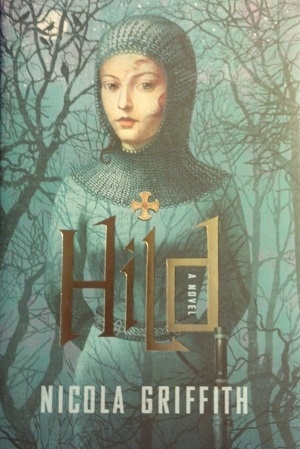
Hers.” No wonder those British huts, as Griffith writes early on, were always hot. She wanted to feel Gwladus respond, rise under her, strong and fierce. “Straight” is perhaps not the best operative word, though, for Griffith does manage to get in a few scenes in which our saint-to-be finds herself on the verge of doing Very Naughty Things to and with her “bodyman”: “She ached.

Griffith’s attention to those details is refreshing and welcome, for the Dark-Age time of Hild is a confusing welter of battling Angles, Celts, Picts and even a few holdover Romanized Britons, of contending lords and would-be lords Griffith’s narrative may be densely woven, but she provides clues and context enough for readers to keep the story and its players straight in their minds. The lacuna affords Griffith ( Stay, 2002, etc.) the opportunity to put her well-informed imagination to work while staying true to the historical details, over which she lingers with a born antiquarian’s love for the past. Of Hilda’s-Hild’s-life not much is known, save that she was an adept administrator and intellectually tough-minded champion of Christianity in the first years of its arrival in Britain.

White proud, based on the real life of the “Anglisc” girl who would become Saint Hilda of Whitby. A historical novel of early medieval England to do T.H.


 0 kommentar(er)
0 kommentar(er)
